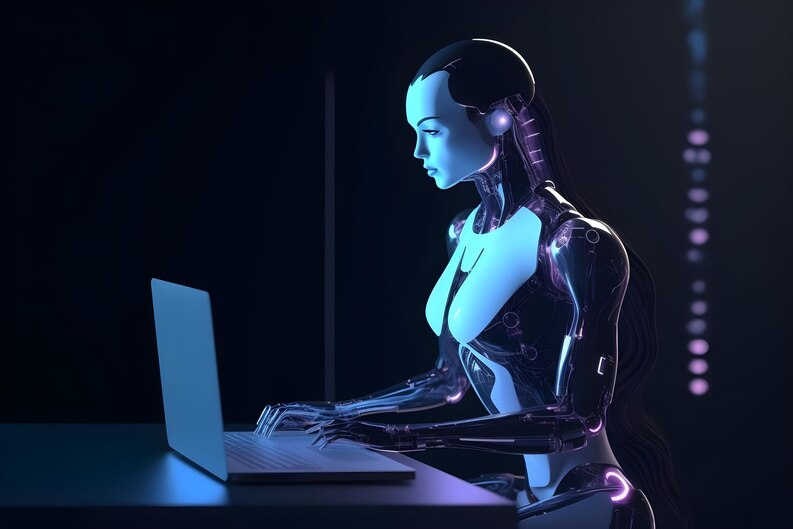Introduction
Artificial intelligence (AI) is transforming the way we live, work, and interact with technology. Over the past decade, AI has made significant changes in industries by automating tasks, improving data analysis, and revolutionizing fields like healthcare, finance, and customer service. As AI continues to advance, it is becoming smarter, more powerful, and a bigger part of our daily lives.
In the next decade, AI will bring even bigger changes. It will make industries more efficient, help people be more productive, and create new challenges related to ethics and regulations. To fully benefit from AI, businesses, individuals, and governments need to understand both the opportunities and the risks it presents.
This article will explore what to expect from AI in the Coming Decade, including major advancements, challenges, and opportunities that will shape the future of artificial intelligence.
What is Artificial Intelligence?
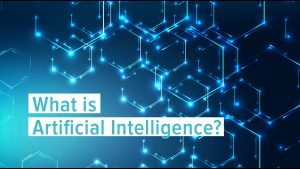
Understanding AI
Artificial Intelligence (AI) is a technology that allows machines to think, learn, and make decisions like humans. It helps computers solve problems, recognize patterns, and improve over time without needing direct human instructions. AI works through different technologies like machine learning (ML), deep learning, and natural language processing (NLP) to analyze data and perform tasks efficiently.
Types of AI
AI is divided into three main categories:
-
Narrow AI – This type of AI is designed for specific tasks like voice assistants (Siri, Alexa), recommendation systems (Netflix, YouTube), and chatbots. It performs well in one area but cannot think beyond its programmed function.
-
General AI – Also known as human-like AI, this type of AI can think and perform tasks like a human. It would be able to learn new skills, adapt to different situations, and make independent decisions. While scientists are working toward developing General AI, it is still in the research phase and not yet fully functional.
-
Super AI – This is a theoretical AI that would surpass human intelligence. It would be able to think, create, and solve complex problems better than humans. While Super AI is still a concept, ongoing advancements in AI technology are bringing us closer to creating more autonomous and intelligent machines.
The Future of AI
Over the next decade, AI is expected to improve significantly. We may see machines that can think, reason, and make decisions more effectively, moving closer to General AI. As AI technology evolves, it will become even more powerful, efficient, and integrated into our daily lives.
How AI Will Evolve in the Next Decade
1. AI in Healthcare: Transforming Medical Treatment
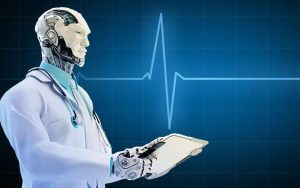
AI is already revolutionizing healthcare, and its impact will continue to grow in the next decade. AI-driven innovations will enhance diagnostics, personalize treatments, and assist in surgeries, improving patient care and medical outcomes.
How AI Will Improve Healthcare:
- Earlier Disease Detection: AI-powered medical imaging will help detect diseases like cancer at an earlier stage with greater accuracy.
- AI-Driven Surgeries: Robots and virtual assistants will assist doctors in performing precise and minimally invasive surgeries.
- Personalized Medicine: AI will analyze patient data to recommend personalized treatment plans.
- Faster Drug Discovery: AI models will accelerate pharmaceutical research and the development of new drugs.
🔹 Example: AI has already helped identify new antibiotics and potential treatments for rare diseases faster than traditional research methods.
🔹 Tip: Hospitals and healthcare providers should integrate AI-powered diagnostic tools to improve efficiency and accuracy in patient care.
2. AI and Automation in the Workplace
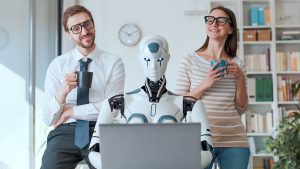
AI-driven automation will significantly change industries like manufacturing, logistics, finance, and retail. Many repetitive jobs will be replaced by AI-powered robots and software, but new job opportunities will emerge as well.
What AI Automation Will Bring:
- Reduced Workload: AI-powered tools will handle administrative and repetitive tasks, freeing up employees for more strategic roles.
- Optimized Supply Chains: AI-driven logistics will reduce costs and improve efficiency in manufacturing and delivery systems.
- AI-Powered Financial Services: AI will help individuals manage investments, detect fraud, and improve banking services.
🔹 Example: Many banks are already using AI chatbots to provide instant customer support, reducing response times and improving service quality.
🔹 Tip: Workers should focus on learning AI-related skills to stay relevant in an evolving job market.
3. AI in Smart Cities: Enhancing Urban Living
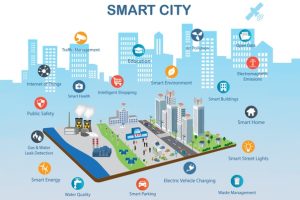
Cities are becoming smarter with AI-driven solutions that improve infrastructure, transportation, and public safety.
How AI Will Shape Smart Cities:
- Traffic Management: AI-powered systems will reduce congestion and improve road safety.
- Energy Efficiency: AI will optimize electricity usage and promote sustainable energy solutions.
- Public Safety: AI-driven surveillance and facial recognition systems will enhance security while raising privacy concerns.
🔹 Example: AI-powered traffic lights are already helping reduce congestion in major cities by adjusting signal timings based on real-time conditions.
🔹 Tip: Governments should establish AI ethics policies to ensure privacy and fair usage of AI in urban environments.
4. AI and Personal Assistants: Smarter Everyday Devices
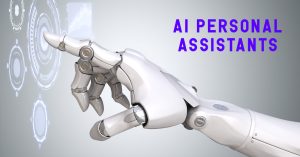
AI-powered virtual assistants like Siri, Alexa, and Google Assistant are becoming smarter, handling more complex tasks and providing better user experiences.
Future Developments in AI Assistants:
- More Human-Like Conversations: AI assistants will better understand emotions and context.
- Smart Homes Integration: AI will control home appliances, security, and lighting more efficiently.
- AI-Powered Customer Support: Businesses will rely more on AI chatbots for personalized and instant customer service.
🔹 Example: AI is improving speech recognition, making virtual assistants more accurate and efficient in responding to commands.
🔹 Tip: Consumers should explore AI-powered smart home technology to improve convenience and security.
5. AI in Education: Enhancing Learning Experiences
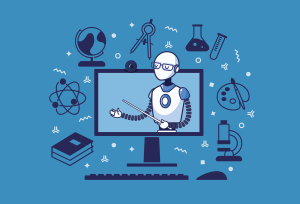
AI will personalize education by adapting learning materials based on students’ strengths and weaknesses.
- AI-powered tutors and chatbots will assist students in real-time.
- AI will help teachers create customized lesson plans and grading systems.
- AI-driven platforms will provide interactive learning experiences through virtual reality.
Education will become more accessible, efficient, and engaging with AI technology.
Challenges and Ethical Concerns of AI

While AI presents incredible opportunities, it also raises concerns that must be addressed responsibly.
Key AI Challenges:
- Job Displacement: AI automation may replace some jobs, requiring workers to reskill and adapt.
- Bias in AI Systems: AI decisions can be influenced by biased data, leading to unfair or unethical outcomes.
- Data Privacy Risks: AI collects vast amounts of user data, raising concerns about security and privacy.
- Regulatory Issues: Governments will need to create ethical AI policies focusing on fairness, transparency, and accountability.
🔹 Tip: AI companies should prioritize ethical AI development by ensuring unbiased algorithms and user privacy protections.
How Businesses and Individuals Can Prepare for the Future of AI

1. Businesses Should Invest in AI Innovation
- Companies must integrate AI to improve efficiency, reduce costs, and enhance customer experiences.
- Investing in AI research and development will keep businesses competitive in an AI-driven economy.
2. Individuals Should Learn AI-Related Skills
- Professionals should learn AI, machine learning, and automation to stay relevant in the job market.
- Online courses and AI certification programs will help individuals upskill and remain competitive.
3. Governments Must Support AI Research & Regulations
- Governments should fund AI research and establish laws for ethical AI use.
- Policies must focus on protecting user privacy and preventing AI misuse.
Table: AI Trends and Their Expected Impact
| AI Trend | Expected Impact |
|---|---|
| AI in Healthcare | Faster disease detection and better treatments |
| AI and Automation | Increased efficiency, job shifts, new opportunities |
| AI in Smart Cities | Improved traffic, security, and sustainability |
| AI in Education | Personalized learning, AI-powered tutors |
| AI in Daily Life | Smarter virtual assistants and automation |
Conclusion
Artificial intelligence (AI) will continue to change industries, businesses, and everyday life in the coming years. It will bring major improvements in healthcare, education, automation, and smart cities, making life more efficient and convenient.
However, AI also comes with challenges, such as job losses, biased decision-making, and concerns about data privacy. These issues need to be carefully managed to ensure AI is used fairly and responsibly.
To make the most of AI’s potential, we need to:
- Invest in AI innovation to develop smarter and safer technology.
- Learn AI-related skills so individuals and workers can adapt to a changing job market.
- Create responsible AI policies to ensure fairness, security, and ethical use of AI.
The future of AI depends on how well businesses, governments, and individuals prepare for its impact. If managed wisely, AI can improve lives, drive economic growth, and create new opportunities while minimizing risks.
Key Takeaways:
AI will revolutionize healthcare, education, and urban development.
AI-driven automation will boost efficiency but require workforce adaptation.
Businesses must invest in AI to remain competitive.
Ethical AI policies are essential for fair and responsible AI use.
Individuals should develop AI skills to prepare for future job opportunities.
AI is not just a technology of the future—it is already shaping our world today. The key to harnessing AI’s power lies in using it responsibly and proactively embracing its potential.









